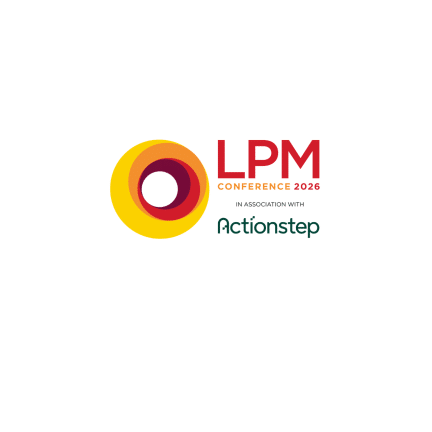
SQE implementation: The costs you see, and the ones you don’t
From training and exams to lost productivity and resits, knowing what to budget for is essential to building a sustainable SQE strategy. Jonathan Worrell, director of business development at BARBRI, shares practical ways firms can manage expenditure while maximising long-term value
While the Solicitors Qualifying Examination (SQE) brings greater flexibility and accessibility to qualification, it also introduces new considerations for firms — particularly when it comes to planning and budgeting. Unlike the Legal Practice Course (LPC), which was often completed before joining a firm (and was sometimes funded or refunded by employers) the SQE is more flexible in structure. Many city firms now ask students to complete SQE1 and SQE2 before the training contract begins, while others, particularly smaller firms, support their trainees to study alongside work. As a result, firms are more closely involved throughout the training journey with study leave, supervisor time, exam preparation, wellbeing support and resit costs all part of the wider planning considerations.
Understanding the full scope of these factors is key to building a sustainable programme that supports both the business and the trainee. Without clear visibility over both expected and less obvious costs, it’s easy to underestimate what’s required for successful SQE strategy development and rollout. But with the right structure, planning and support, firms can manage these costs effectively — and turn their SQE investment into a long-term advantage.
What firms typically budget for SQE
Most firms will already be aware of the key expenses involved in SQE implementation. These include course fees and assessment costs, as well as supplementary academic support such as mock exams or revision sessions if your SQE prep provision doesn’t already include that.
Current SRA assessment fees are £1,888 for SQE1 and £2,902 for SQE2, with confirmed increases coming into effect for assessments from September 2025. Fees must be paid in full in advance — making early planning essential for firms budgeting across cohorts or multiple training cycles.
Firms we work with receive free one-on-one coaching and live performance tracking as part of our package to support first-time success, something no other provider currently offers. And that investment pays off. In the January 2025 SQE1 exam, 80% of BARBRI candidates from client firms who completed 90% of their Personal Study Plans (PSP) passed, compared to the 56% industry average. For SQE2 in October 2024, BARBRI client firm candidates achieved a 93% pass rate, against an industry average of 81%. Resits cost the same as initial attempts, so higher pass rates significantly reduce both financial and operational strain.
Hidden SQE costs that can catch firms out
However, these known costs are just part of the picture. Study leave, while not always formally structured, has a cost too — whether through paid time off or lost productivity during high-pressure study periods. Supervisor time, particularly in firms rolling out SQE for the first time, also needs to be factored in. Even activities like checking in on trainee wellbeing or managing exam logistics can place a strain on internal resources if not planned effectively.
Other costs are easier to miss, like travel to assessment centres and accommodation for a few days can add up quickly. Technical issues with exam bookings or delays in qualification can lead to further admin time and increased pressure on HR and L&D teams too. Resit costs are another consideration that can catch firms off guard — if a student doesn’t pass the first time, it’s important to be clear upfront about who covers that expense. And while harder to quantify, the demands of study and exam pressure can sometimes affect morale. With the right support in place, though, these moments can be managed in a way that maintains engagement and confidence.
How to plan more effectively for SQE
The good news is that these pressures can all be planned for and easily managed with the right structure and foresight. Aligning your SQE model to your firm’s operational systems is essential. Some firms adopt a front-loaded approach, where candidates complete both SQE1 and SQE2 before joining the firm, often using a full-time or accelerated study route. Others prefer a hybrid model, with trainees preparing for SQE2 alongside their role — typically supported by flexible, part-time options.
Firms should also consider building in protected study time, even if it’s minimal. Without this, trainees are more likely to underperform or defer, which ultimately costs more in time, money and momentum. Regular progress check-ins (ideally monthly) can help spot challenges early, before they become bigger issues. Supervisor and manager training is also essential, especially for those unfamiliar with the structure or demands of the SQE.
Support for wellbeing may not show up in a budget spreadsheet, but it plays a significant role in outcomes. Mental health check-ins, peer mentoring or even informal support from past SQE candidates can make a difference, particularly during peak exam pressure. Firms that proactively invest in wellbeing tend to see stronger performance and higher long-term retention.
Support that reduces risk and protects your investment
Finally, choosing a provider that offers flexible study models, real-time performance insights, and built-in academic and wellbeing support can make a measurable difference. BARBRI supports over 250 firms across the UK and beyond, working successfully alongside magic circle to mid-tier and SME firms, tailoring solutions to individual structures, culture and commercial goals. We provide live course access, live real-time progress tracking, exam vouchers and a responsive client services team, all designed to reduce internal pressure and support success at every stage of the qualification journey.
The SQE offers a major opportunity to build a more flexible, accessible and future-focused route to qualification. But real success depends on how well it’s implemented. By understanding the full scope of costs — from upfront investment to hidden strain — firms can plan smarter, minimise disruption, and create a training programme that delivers lasting value.
Planning for success
From protected study time and supervisor training to wellbeing and resit risks, SQE implementation touches more areas of your firm than many expect. It’s a strategic commitment to developing talent and shaping the future of your firm. Factoring in these broader costs — not just the exam fees — helps avoid disruption and supports the growth of early careers. With the right preparation and the right partner, firms can reduce internal strain, support high performance, and deliver a qualification pathway that works for everyone involved — ensuring a strong return on investment in the medium and long term.
Want to discuss your SQE budget or rollout strategy? Contact Jon Worrell today to see how BARBRI can support your firm.




